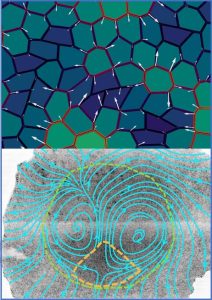Postdoc position to study gastrulation in the chick embryo
Posted by Cornelis Weijer, on 18 May 2023
Job type: Postdoc
Location: School of Life Sciences, University of Dundee, Dundee, United Kingdom
Closing Date: 5 June 2023
We ar e recruiting a highly motivated individual to join us as a Postdoctoral Research Assistant, to undertake fundamental research into the molecular, cellular and biophysical basis of gastrulation. We will use the chick embryo to study this critical stage of early embryonic development using a combination of experimental and theoretical approaches. A key aim of the research is to characterise and understand the interplay between cell and tissue-scale
e recruiting a highly motivated individual to join us as a Postdoctoral Research Assistant, to undertake fundamental research into the molecular, cellular and biophysical basis of gastrulation. We will use the chick embryo to study this critical stage of early embryonic development using a combination of experimental and theoretical approaches. A key aim of the research is to characterise and understand the interplay between cell and tissue-scale
mechanical forces, cell differentiation, and cell behaviours during gastrulation. This research project is a highly interdisciplinary collaboration at the Life Sciences/Physics interface as part of a UKRI funded Physics of Life programme with the research teams of Dr. Rastko Sknepnek, University of Dundee, Prof. Julia Yeomans, University of Oxford and Prof. Guillaume Charras, University College London.
The Dundee PDRA will be primarily responsible for the characterisation and quantification of in-vivo critical cell behaviours, that drive large-scale tissue flows and deformations during gastrulation in the chick embryo. These cell and tissue behaviours will be visualised and characterised at the scale of the embryo using a custom-built dedicated lightsheet microscope. The experiments will make extensive use of novel transgenic chick lines to study early development, using a combination of genetic and local and global chemical, and physical perturbations. The large image data sets arising from these experiments will be analysed using an extensive dedicated computational data analysis pipeline. These in-vivo experiments will interface directly with in-vitro biophysical experiments on tissue isolates from these embryos carried out in UCL and will form input for detailed biophysical modelling in Dundee and Oxford. This position therefore not only provides a unique opportunity to work on solving an important biological problem using state-of-the-art techniques but also offers the opportunity to work on a highly interdisciplinary research project at the interface of biology and physics
Salary: £33,309 to £40,927
Start date: 3 July 2023
Closing Date: 5 June 2023
Scientific fields: Early embryogenesis, Computational and systems biology, Morphogenesis, Quantitative biology and modelling
Model systems: Chick
Duration: Fixed term
Minimum qualifications: PhD, or about to receive a PhD

